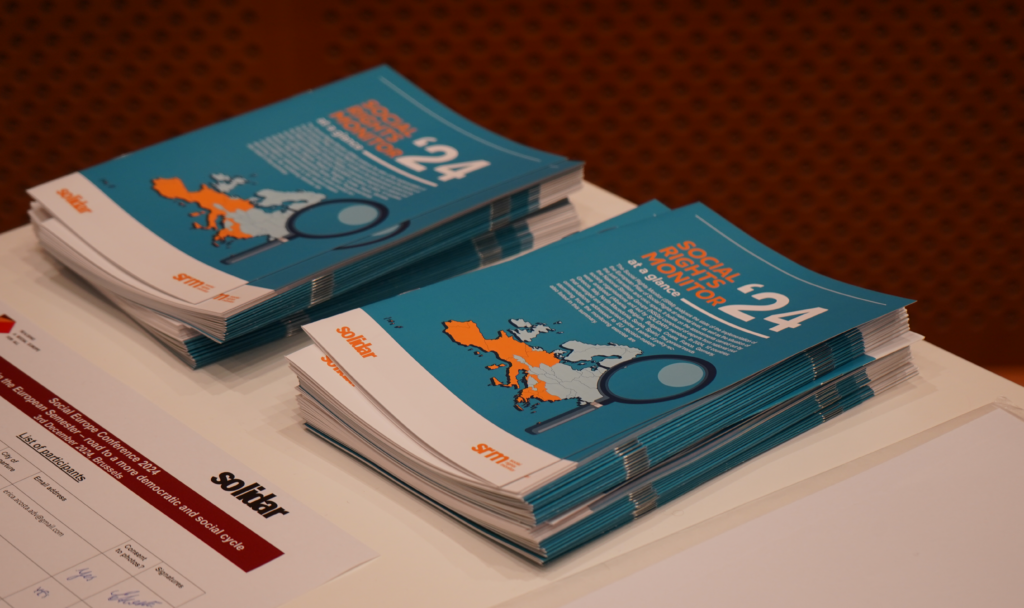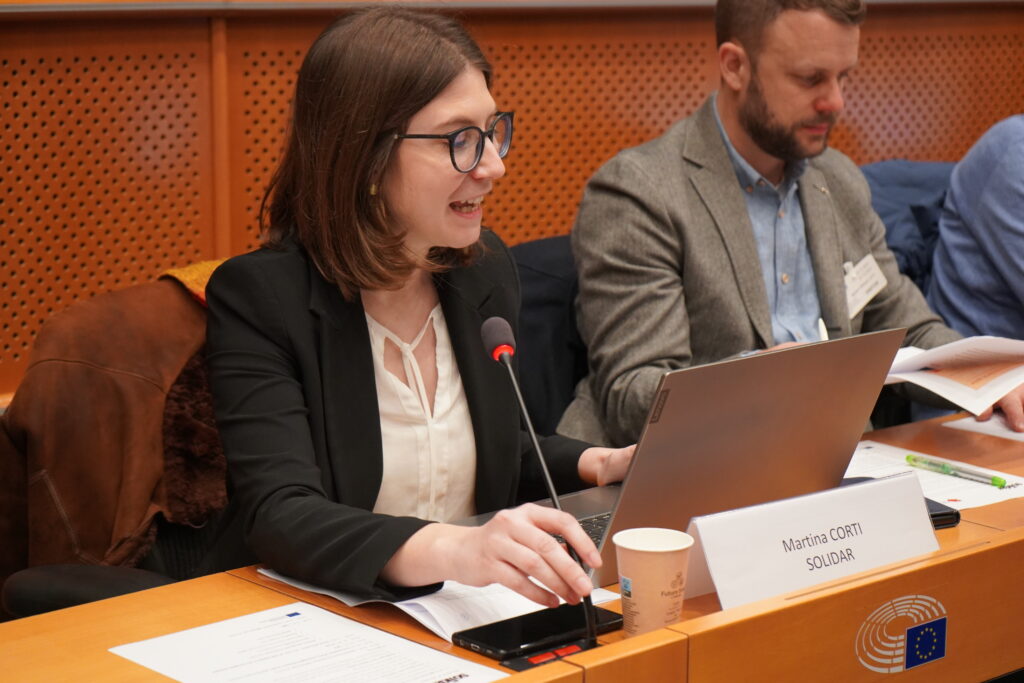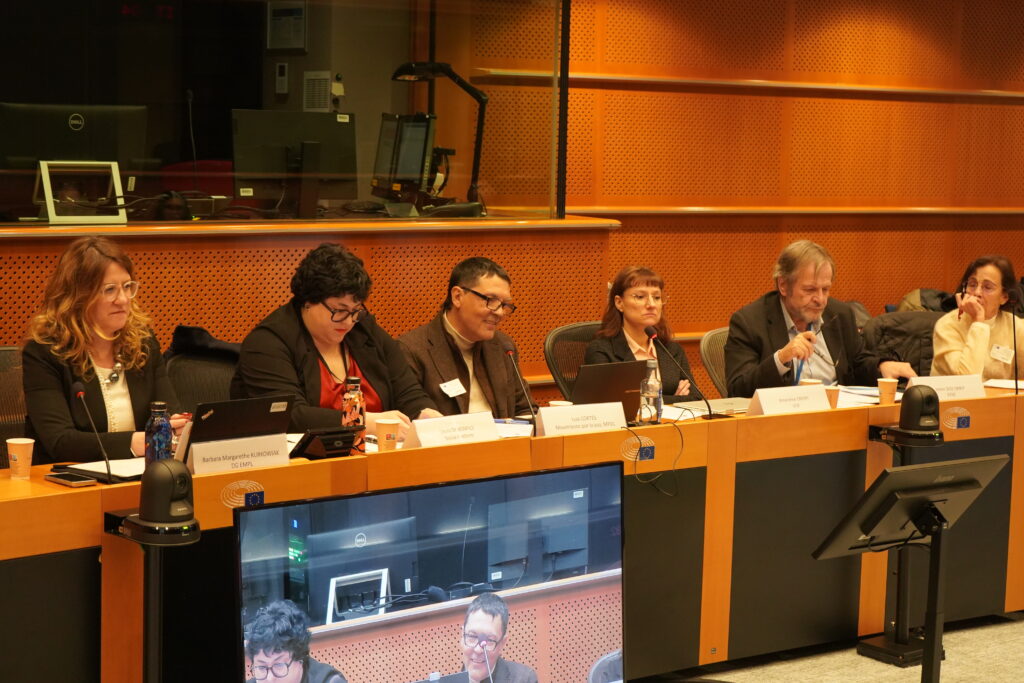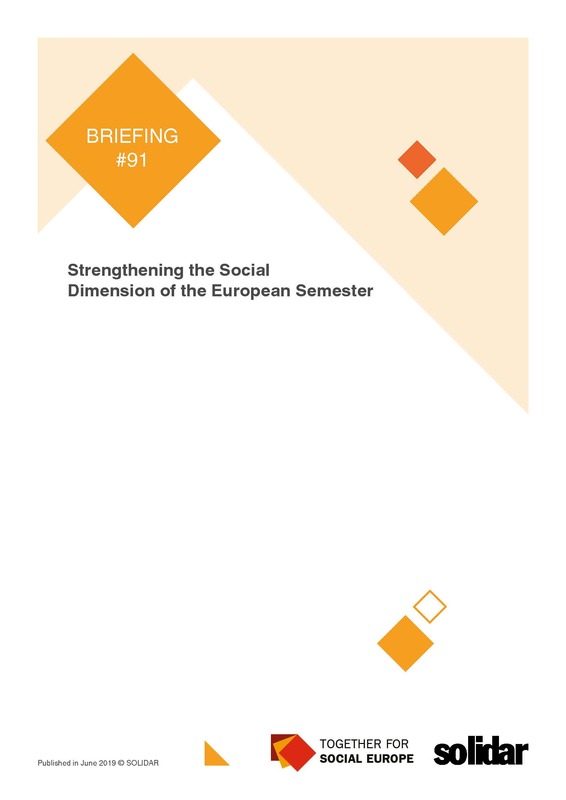Social Europe conference | Civil Society in the European Semester: more democracy for a more social Europe

On 3rd December 2024, SOLIDAR hosted its annual Social Europe Conference in the European Parliament, under the title Civil Society in the European Semester: Road to a more democratic and social cycle. It brought together 44 participants representing civil society organisations, social and solidarity economy actors, academia and EU institutions and bodies. It was co-hosted by MEP Idolia Mendía, from the S&D Group, who unfortunately could not join us on the day.
The SOLIDAR Rights Monitor 2024
SOLIDAR Social Affairs officer, Martina Corti, presented SOLIDAR’s Social Rights Monitor (SRM) and its 2024 edition’s findings.

The SRM is a tool to monitor state of Social Rights, at national level, compiling data from SOLIDAR members that have first-hand experience. Three of the chapters assessed correspond to the three chapters of the European Pillar of Social Rights (EPSR), and civic space and progress towards a Just Transition were added to bring a more holistic dimension to assessing social rights.
SOLIDAR members lead National Strategic Groups to gather information at a specific country level, and submit it to SOLIDAR Secretariat. The Secretariat edits the information received into country reports, that are fed into the Social Rights Map, a dedicated website to visualize the SRM’s results. SOLIDAR Secretariat also publishes a European overview of the main trends in the given year. The SRM 2024 monitored developments from June 2023 to May 2024 in 9 EU countries and 3 non-EU countries. The main European trends in each of the areas assessed, as well as SOLIDAR’s recommendations, can be found here. It is worth noting that increased unavailability and unaffordability of housing in Europe were flagged as a major issue for the second year in a row.
The exchange with the audience was the occasion to reflect on the indicators used, and to acknowledge the SRM is an instrument that works both way, to assess the state of social rights in Europe to feed in the European Semester, and for SOLIDAR members to become more familiar with this intricate EU process.
Panel Discussion – the role of civil society in the European Semester

Barbara Margarethe Kurkowiak from the European Semester Unit of DG EMPL, highlighted the Commission’s work will be steered by the Draghi report’s strong point that the EU is more than a single market. The 2025 Semester cycle will continue its job of identifying key reforms and investments needed in Member States.
CSOs are planners, implementers and the main link with citizens. Civil society dialogue may be organised differently to social dialogue, but it is also a political process the EC encourages, and for Member States to involve their CSOs. The EC, at least DG EMPL, has exchanges with EU-level CSOs that are not a only feedback exercise, but also about identifying priorities, collecting evidence. The EC is always looking forward to receive CSO’s input, also through the in-country Semester officers.
Laura de Bonfils, Secretary General of Social Platform contended that though the social dimension of the European Semester grew in recently years, it still needs reinforcing as country-specific recommendations are still very focused on improving competitiveness. The little social dimension is heavily turned towards the green transition. Looking at involvement of CSOs is crucial to ensure policy making is evidence based, but also that policy suggestions are responding to people’s needs. There are however barriers:
- DG EMPL is the exception in engaging with CSOs on the Semester.
- CSOs lack access to information.
- The semester is a fast process, complicated, often perceived as remote from day to day realities.
CSOs need to continue to advocate for the generalization of CSOs engagement on the Semester to other DGs, seeing their priorities in the recommendations, getting proper information, clear timelines and processes.
Luis Cortés, Movimiento por la paz, MPDL gave a few examples of how this Spanish CSO, that evaluates policies’ social impact, uses the SRM. It disseminates the SRM findings to the public and also to other coalitions and networks MPDL is part of, notably at national level.
Amandine Crespy, ULB expressed skepticism on the possibility to really transform the Semester into a process to tackle social problems, as it was not created for this. Certainly, some CSRs in pandemic times reached far in terms of social reforms, but the DNA of the Semester is to focus on fiscal frameworks and reduce public spending. The SRM provides a welcome, different type of data than what is used in the Semester. When the latter relies on mostly quantitative, nationally structured data, the SRM uses qualitative data and attempts a transnational analysis. In terms of CSOs advocacy, she sees two key tracks for exploration:
- The European Parliament has so far had a marginal role in the Semester. Could this role be enhanced?
- The agenda’s priority is clearly skills and competitiveness, but our social concerns can be inserted there – how can people train, work if they are in poverty and cannot warm their house?
Javier Doz Orrit, EESC explains that the EESC has a European Semester group of 49 members. The group conducted in 2022 an opinion on national CSO’s involvement in the Semester, and the conclusions are quite negative. In April 2023, it published recommendations for a solid reform of the Semester, stipulating the involvement of social partners and CSOs in it by means of an EU Regulation.
The exchange highlighted that CSOs are increasingly under attack on the financial side, on regulations deciding what can be done with EU funding. CSOs will need funds to be critical and have a strong position on issues.
This conference was organized in the framework of SOLIDAR’s Organisational Strategy 2021-2025 and the program ”Realising Social Europe for All and With All”, supported by the European Union, through the EaSI strand of the ESF+ programme.



